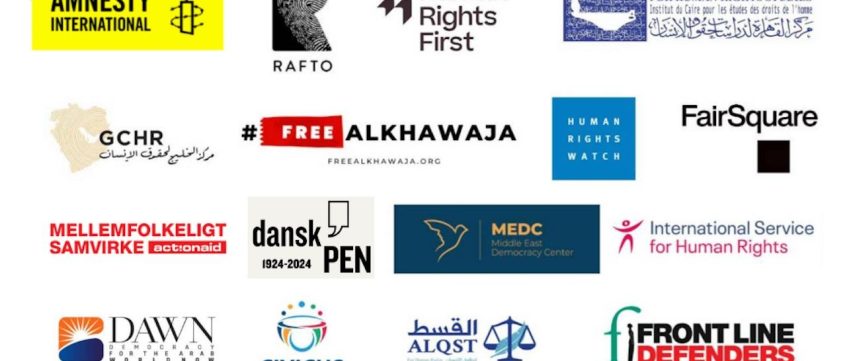Danish-Bahraini human rights campaigner, Maryam Al-Khawaja, has cancer; Demands the release of her father and a ceasefire in Gaza during treatment.
COPENHAGEN: Today, Monday 19 February, the Danish-Bahraini human rights campaigner, Maryam Al-Khawaja, announced that she has cancer and is starting chemotherapy.
In a video announcement to her 120.000 followers on Twitter/X, Maryam said that she was informed on 30 January that she has Hodgkin’s lymphoma, stage 3 blood cancer.
Maryam, who is a leading voice for human rights and political reform in Bahrain and the SWANA (Southwest Asian/North African region) and was chosen as one of the 100 inspiring and influential women from around the world for 2023 by the BBC, said in the video:
“In January 2024 I learned that I have stage 3 blood cancer. As I fight for my health in this critical time, one truth is very clear: it is time for freedom. Freedom for my father, Abdul-Hadi Al-Khawaja and freedom for the Palestinian people. Before more harm is committed, I urge the Danish government to lead with its stated human rights values: to leverage its diplomatic power to release my father and decisively end all arm sales and demand a ceasefire in Gaza. Only then, can all of our families finally be safely together.”
Denmark must do more to release Abdulhadi Al-Khawaja and end all arms sales and call for a ceasefire in Gaza now, Maryam demands
In the video, Maryam explains that while she will be affected by the chemotherapy, she will continue to raise awareness of two issues close to her heart; the fight for her fathers release and the fight to stop the genocide in Gaza.
Maryam’s father, Abdul-Hadi Al-Khawaja, is the only Danish imprisoned human rights defender in the world. For 13 years, he has been unjustly imprisoned in Bahrain. For Maryam, the fight for her father’s release also holds a deeper meaning in light for the situation in Gaza. Maryam says:
“My father has always said that the fight for human rights is universal. My father and I are appalled by the fact that civilians in Gaza, some who also have cancer, are currently being bombed and killed. From Bahrain to Palestine people are forced to live without their loved ones, – either because they are wrongfully imprisoned or because bombs are falling above them. It must stop now.”
Demand #1 Denmark must strengthen its call to release my father, Abdulhadi Al-Khawaja
- Use public and private pressure in bilateral Danish-Bahraini relations to press for Al-Khawaja’s immediate release, including economic and cultural ties with Bahrain as points of pressure.
- Push for a statement from the EU High Representative calling for Al-Khawaja’s release.
- The Danish Foreign Minister must personally call Al-Khawaja in prison to promise his efforts for the release.
Demand #2 End all arm sales and demand a ceasefire in Gaza now
- Denmark must call for a ceasefire in Gaza to allow humanitarian aid to get to civilians.
- In light of the ICJ provisional measures and the recent rulings of a Dutch appeals court, Denmark must suspend any sales of arm or dual-use used in or by Israel.
Background (Abdulhadi and Maryam Al-Khawaja, and the situation in Gaza)
- Abdul-Hadi Al-Khawaja is a prominent Danish-Bahraini human rights defender. He was arbitrarily and wrongfully arrested, tortured, and given lifetime in prison in 2011 in Bahrain after leading peaceful protests calling for fundamental freedoms and rights in Bahrain. After 13 years, he remains in prison under dire prison conditions, and the UN has repeatedly called for his immediate release, most recently in 2023.
- Maryam Al-Khawaja, who is a leading voice for human rights and political reform. She was chosen as one of the 100 inspiring and influential women from around the world for 2023 by the BBC, for, among other things, fighting for her father’s release. On 30 January, she was diagnosed with Hodgkin’s lymphoma, stage 3 blood cancer.
Israel’s military assault on the Gaza Strip enters its fifth month with forces continuing to commit, with impunity, serious violations of international humanitarian law. Based on fears of violation of the Genocide Convention, the International Court of Justice (ICJ) ordered provisional measures against Israel.
View this post on Instagram
